Foods Proven to Lead to High Blood Pressure, Say Dietitians
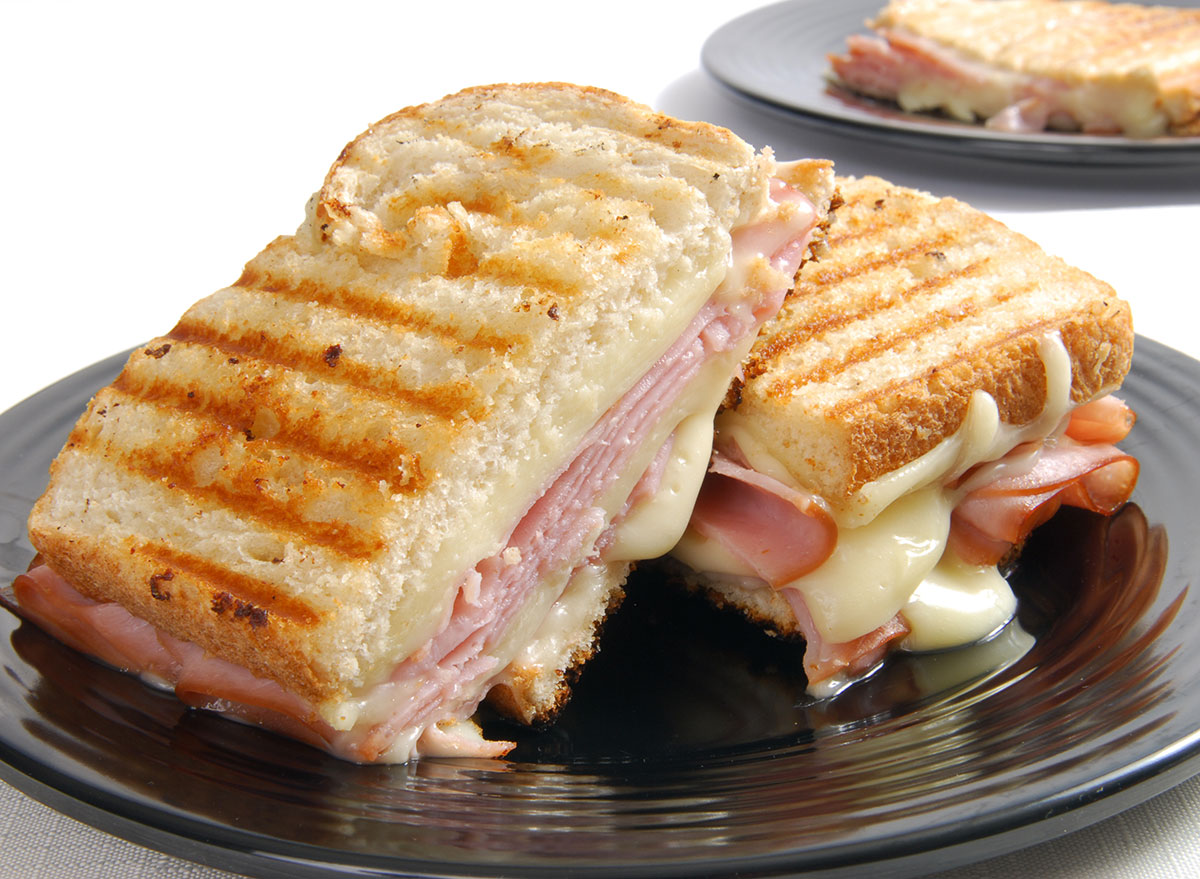
Most recent data from the Centers for Disease Prevention and Control reveals that almost half of adults in the U.S. have hypertension, also known as high blood pressure. The question is, why?
Kris Sollid, RD, registered dietitian and senior director of nutrition communications at the International Food Information Council, says there are numerous lifestyle habits that contribute to hypertension. The main ones include consistently eating an unhealthy, high-sodium diet, not getting enough exercise, smoking cigarettes, drinking too much alcohol and caffeinated beverages, and routinely not getting enough quality sleep. Of course, other factors are at play that oftentimes are out of our control such as age, underlying medical conditions, socioeconomic status, and even your own neighborhood.
Because your diet is one of the most effective ways to reduce your risk of hypertension, we asked dietitians what foods they recommend you steer clear of, or at the least, eat in moderation to help keep your blood pressure levels in the healthy range. Here are four foods that may contribute to hypertension and then, don't miss The 7 Healthiest Foods to Eat Right Now.
Bread
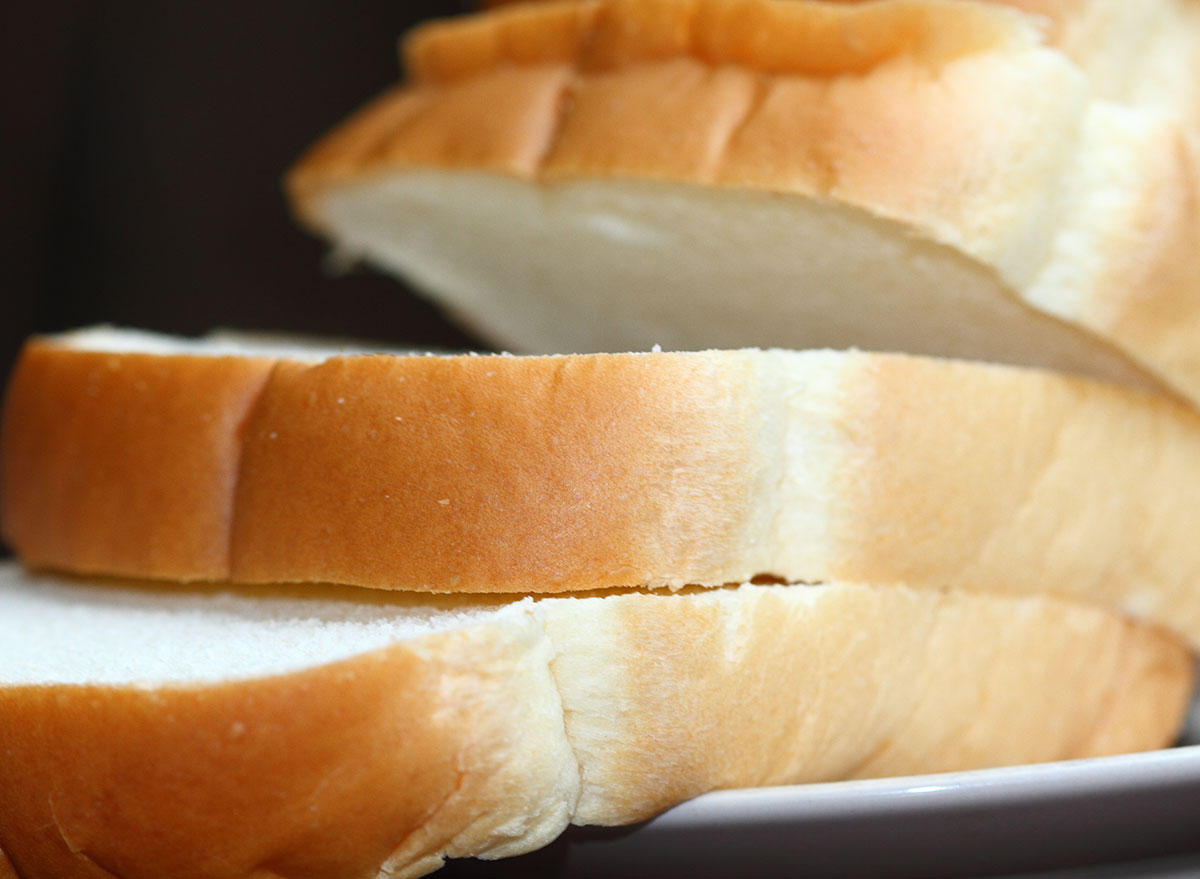
"This is a food that no one considers to be high in sodium and it sneaks its way into our day multiple times from breakfast to lunch, says Amy Shapiro, MS, RD, CDN, founder and director of Real Nutrition NYC, and member of our medical review board.
"Many types are considered healthy, like whole wheat, but it is very hard to find low sodium bread. Unless you look for low-sodium bread intentionally, know you often will be consuming more sodium than you expected, which can lead to high blood pressure."
Shapiro's suggestion? Ditch the bread at lunch and opt for a meal that predominantly comprises vegetables, such as Daily Harvest's Sweet Potato + Wild Rice Hash Harvest Bowl! Or, shop for a better-for-you bread option with the help of our guide: The Healthiest Breads to Eat for Weight Loss, According to Dietitians.
Deli Meat
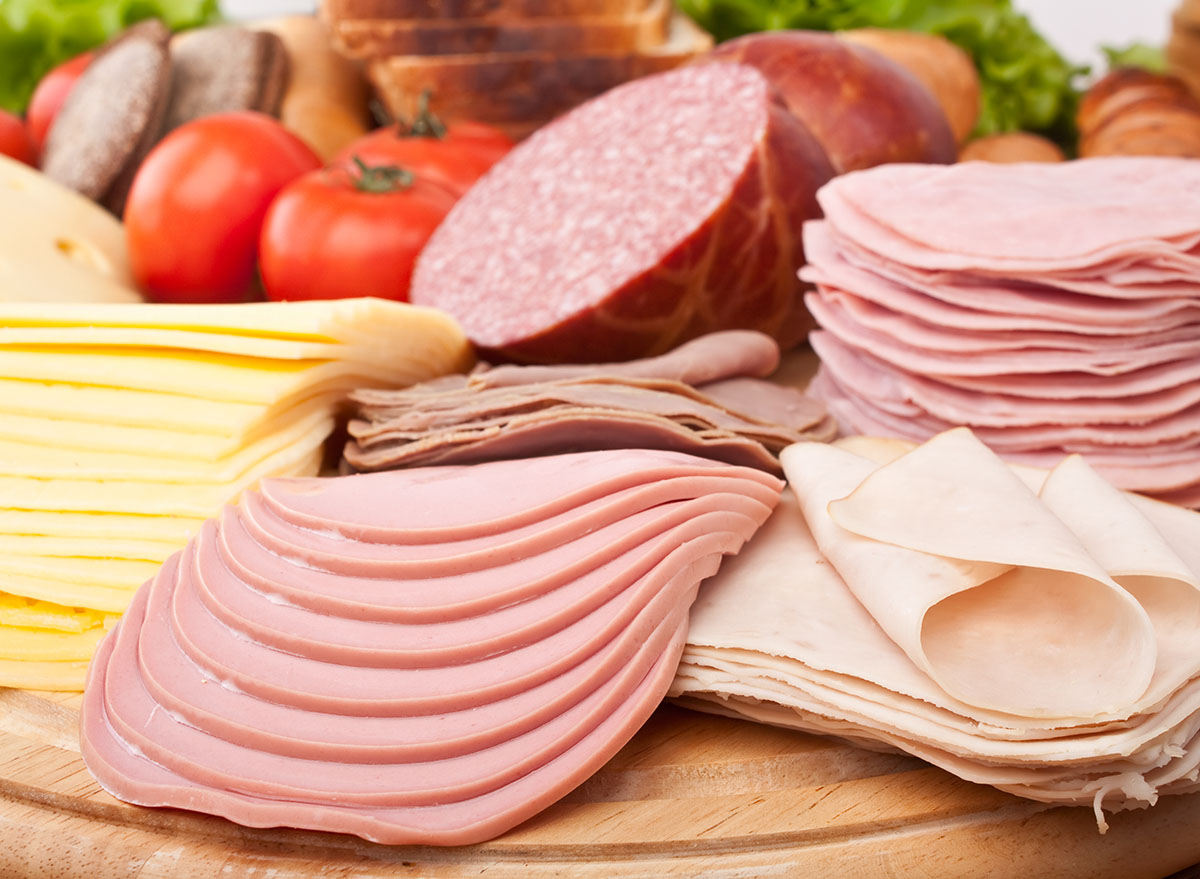
While Shapiro says deli meat is a staple lunch ingredient, especially for lunches and dinners on the go or quick meals at home, it's loaded in sodium and can be harmful to your health if eaten in excess and often.
"Eating a turkey sandwich from the deli or adding roast beef to your salads may seem healthy and low in fat, but the sodium is sky high and can result in high blood pressure, and ultimately be detrimental to your health," she says.
SHOP NOW: These Are The 10 Best Low-Sodium Lunch Meats to Buy
Cheese
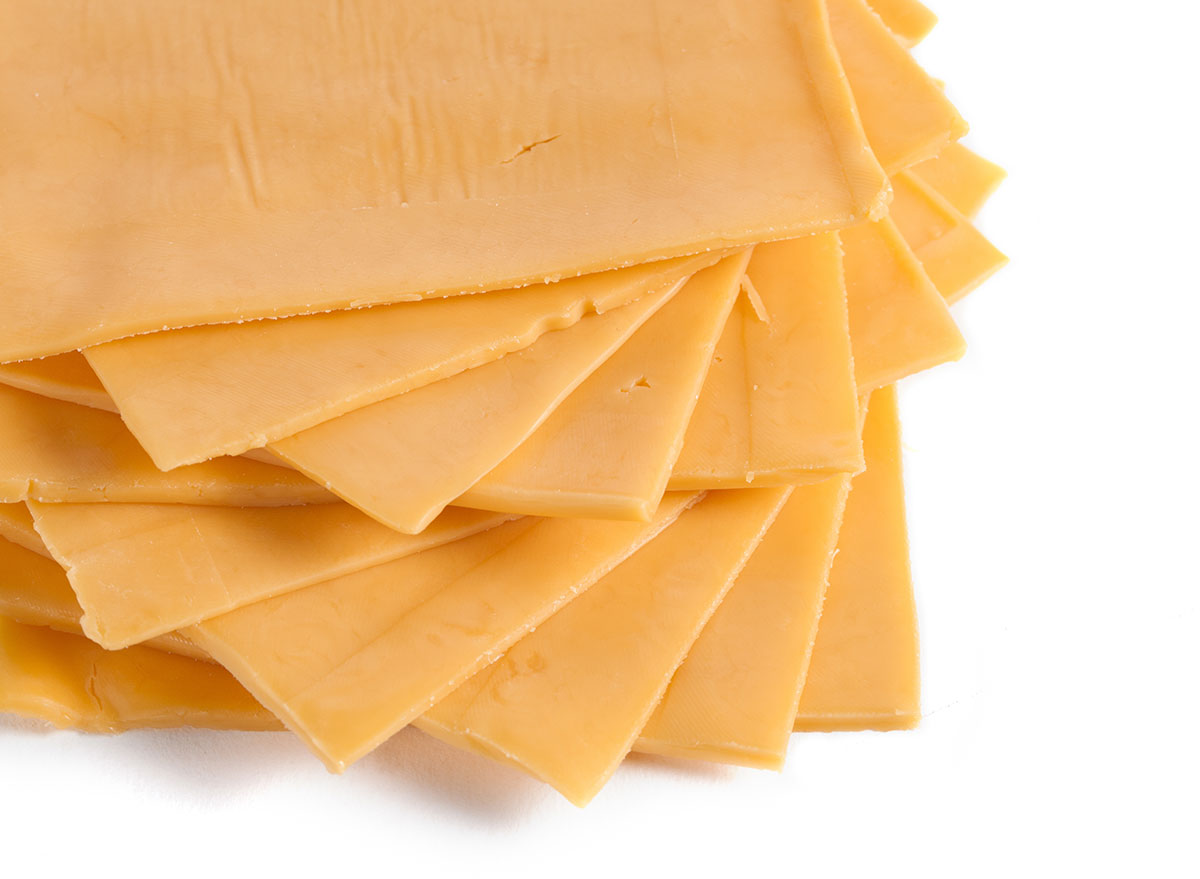
When you think of some of your favorite foods, do any of them involve cheese? Chances are at least one of your go-to dishes does, but beware, too much of the stuff may hinder your heart health.
"There is a lot of sodium hidden in cheese and since it finds its way into so many meals and cuisines, it is hard to avoid even if you try," says Shapiro. "The sodium from cheese paired with the saturated fat is an unhealthy combo when eaten in [big] quantities, especially when it comes to high blood pressure."
A diet that's high in processed foods
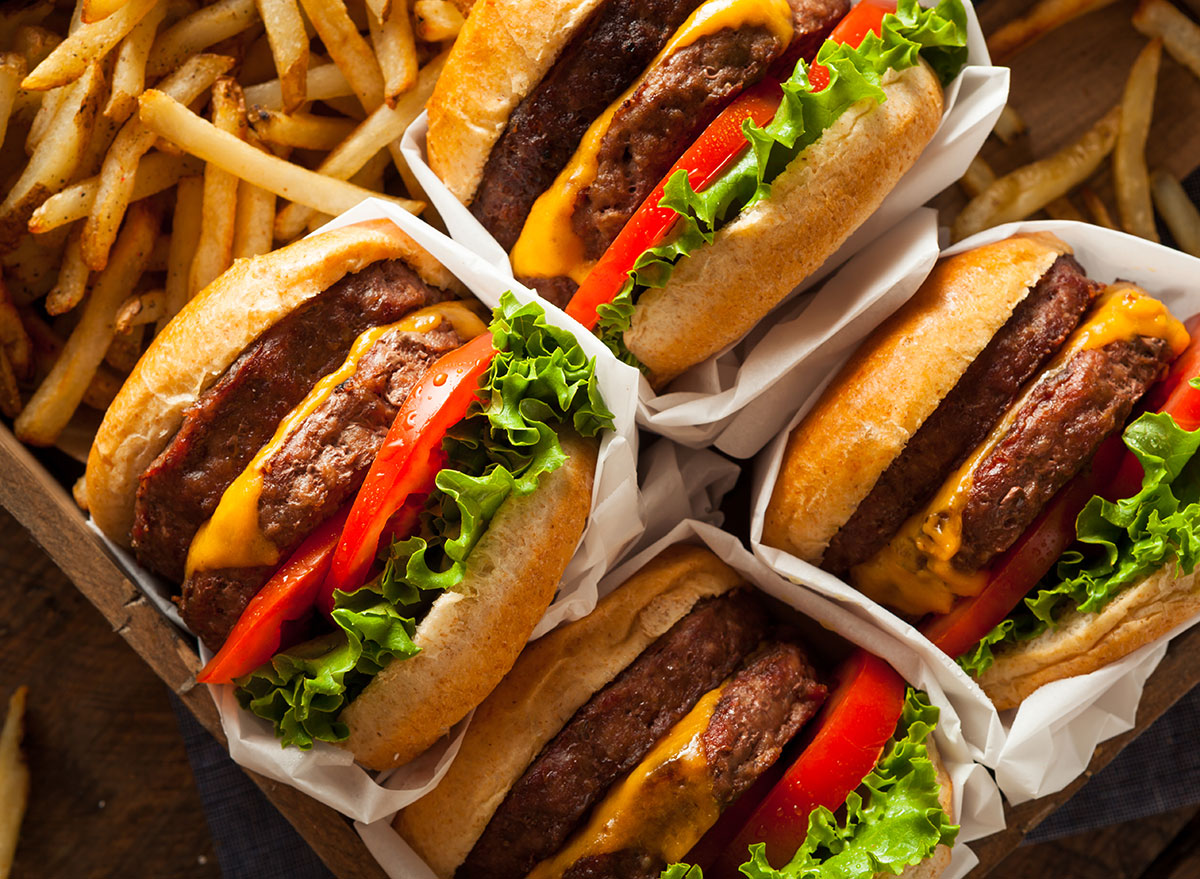
High blood pressure isn't caused by eating just one food in particular—certain diet patterns are more likely to lead to high blood pressure, and that includes a diet that's high in processed foods.
"Consistently consuming an unhealthy diet, including one with too much sodium, can eventually lead to developing high blood pressure," Sollid says. "High blood pressure is a complex health condition. Following a healthy overall eating pattern that is low in sodium can help to control or lower blood pressure and be part of an effective treatment plan for hypertension."
To lower blood pressure, try… the DASH Diet
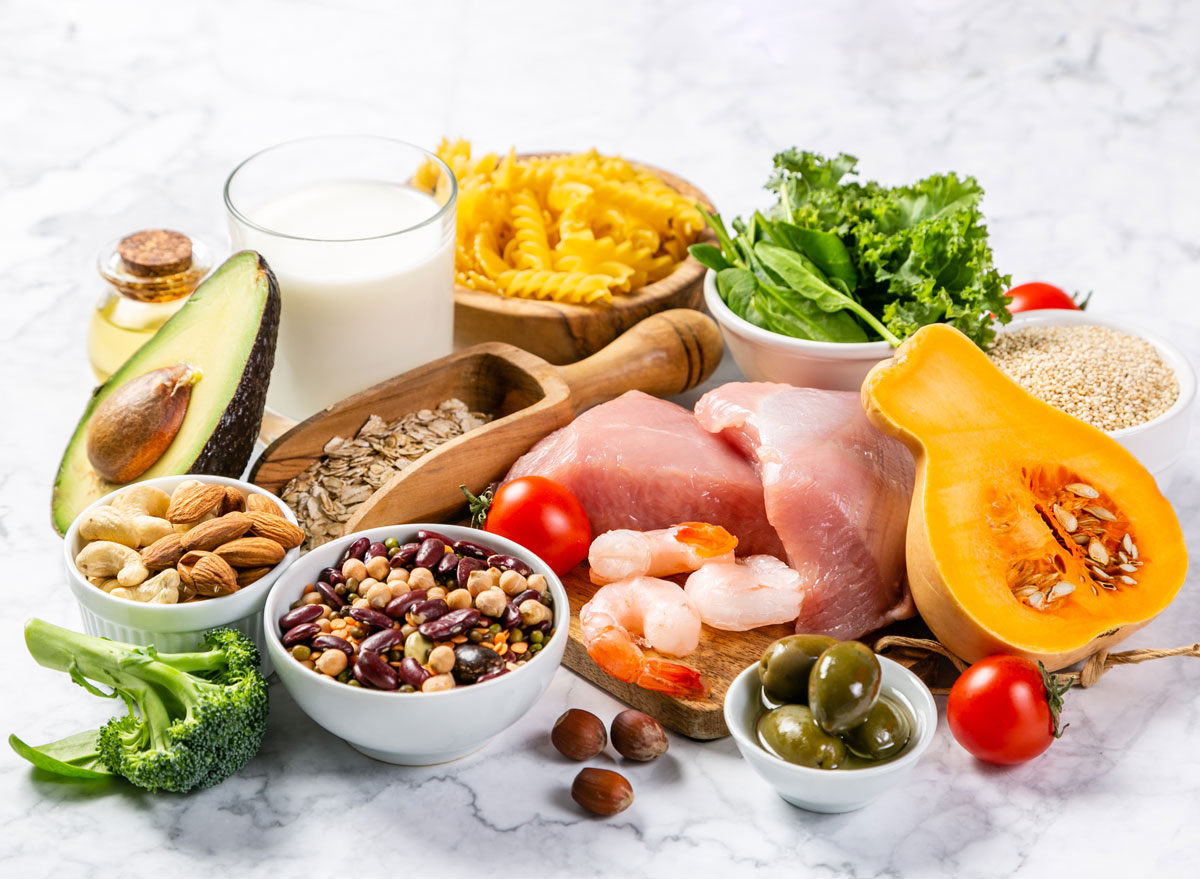
In addition to avoiding consuming too much alcohol and caffeine regularly, Sollid says the DASH diet, which stands for Dietary Approaches to Stop Hypertension helps to reduce blood pressure through the consumption of heart-healthy foods. This includes vegetables, whole grains, nuts, beans, legumes, lean protein, and olive oil. It also calls for a limited intake of saturated fat, sodium, and encourages increased consumption of fiber and key minerals such as potassium.
For more, be sure to check out Dangerous Side Effects of Having High Blood Pressure.








